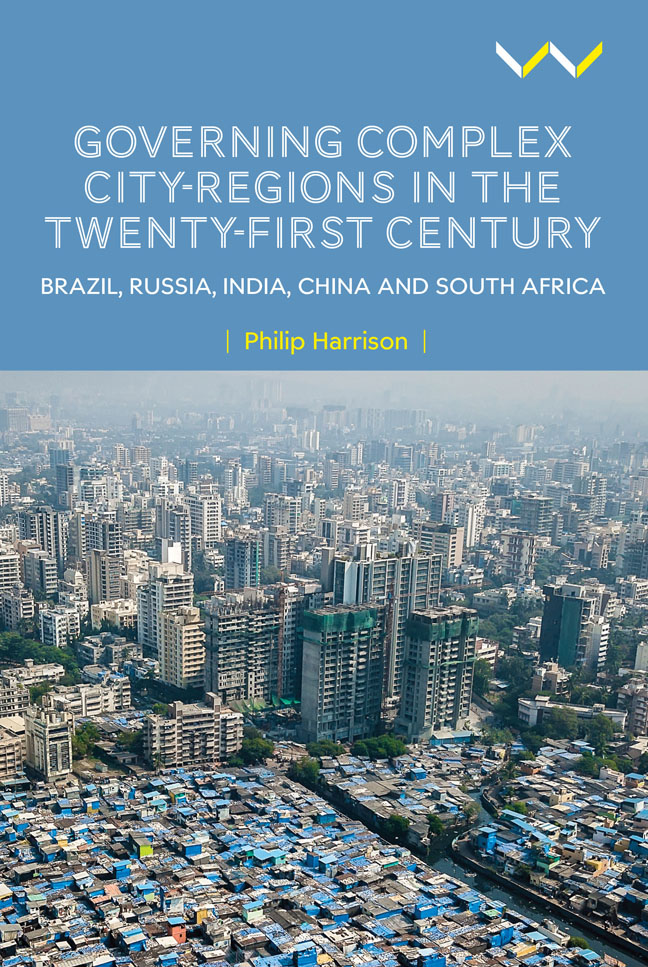 Governing Complex City-Regions in the Twenty-First Century
Governing Complex City-Regions in the Twenty-First Century Book contents
- Frontmatter
- Contents
- List of maps
- Preface
- Acknowledgements
- Acronyms
- Cartography
- Introduction: Exploring hyper-complexity
- 1 The global view: The city-region as material form, discourse and governmental practice
- 2 The governance of Brazil’s metropolitan regions
- 3 The governance of Russia’s urban agglomerations
- 4 Metropolitan and city-region governance in India
- 5 Governing the city clusters of China
- 6 City-region governance in South Africa
- 7 Concluding and comparative insights
- References
- Index
1 - The global view: The city-region as material form, discourse and governmental practice
Published online by Cambridge University Press: 02 March 2024
- Frontmatter
- Contents
- List of maps
- Preface
- Acknowledgements
- Acronyms
- Cartography
- Introduction: Exploring hyper-complexity
- 1 The global view: The city-region as material form, discourse and governmental practice
- 2 The governance of Brazil’s metropolitan regions
- 3 The governance of Russia’s urban agglomerations
- 4 Metropolitan and city-region governance in India
- 5 Governing the city clusters of China
- 6 City-region governance in South Africa
- 7 Concluding and comparative insights
- References
- Index
Summary
Introduction
This chapter explores the ‘inter-contextual patterns’ within which the case studies are embedded (Brenner and Schmid 2015, 164). It deploys both a soft realism and the idea of co-evolutionary adaptation.
For the soft realist, the discursive can never capture the totality of what is there, but it does not float free of reality because of the ongoing iterative process of observation, imagination, description and redescription. In the co-evolutionary process, actors continually interact with a changing material world and are learning, responding and adapting (Van Assche et al. 2021). Mutual adaptation processes are invariably partial and imperfect, but over the longer term, it is possible to discern the relationships.
To André Sorensen (2020, 50), for example, governance is a necessary and emergent response to the materiality of the urban:
The growth of cities demands the establishment of institutions of city governance, city planning, infrastructure provision, land development control, public health, education, transport, waste management, and many, many others, as contemporary cities cannot exist without such institutions and the systems they support. Urbanization processes in this way force an extraordinary series of contingent institutional choices about everything from municipal boundaries to legal powers, taxation capacity, local services, property regulation regimes, infrastructure systems, and other.
Simin Davoudi and Elizabeth Brooks (2021, 56) reveal the emergent nature of discursive practices, showing how they are normalised as they ‘gain traction through deliberation, repetition, and circulation’. For Willem Salet et al. (2015), these discursive practices interpret material change and inform governmental responses.
In this chapter, I provide a global scan, structured historically, of the city-region’s interacting material, discursive and governmental dimensions. It shows how these dimensions are mutually constituted, with considerable variation across time and space.
Getting physical
While cities have an ancient lineage, complex, sprawling agglomerations are historically recent. In pre-industrial times, the physical spread of cities was restricted by transport technologies and defence requirements. There were, however, urban networks structured along trade routes and some of these, such as the Hanseatic League in northern Europe and the silk routes across Asia, had incipient forms of networked urban governance (Dash 2010; Fink 2012).
The sprawl started in Great Britain during the First Industrial Revolution and extended into continental Europe. Initially, there was a form of proto-industrialisation, with cottage industries producing an intricate spatial patterning of village growth and interconnection.
- Type
- Chapter
- Information
- Governing Complex City-Regions in the Twenty-First CenturyBrazil, Russia, India, China, and South Africa, pp. 17 - 48Publisher: Wits University PressPrint publication year: 2023


